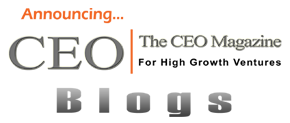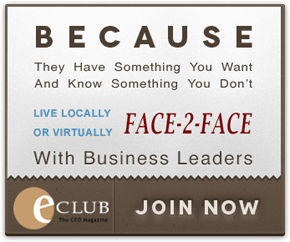You are here
- Guest Blogger |
- Leadership |
- Tue, 02/06/2018 - 23:54
Steve Andrew, Vice President, Marketing, IFS North America
The United States economy is nearing full employment. As the availability of skilled employees continues to tighten, talent has become a primary constraint faced by businesses intent on growth. And at this point in the 21st Century requires the adoption of technologies that deliver the benefits of digital transformation, which make employees with the ability to implement and leverage technology a prerequisite for growth.

Some respondents to an IFS study are likely to change jobs when enterprise software is difficult to use.
According to the IFS Digital Change study, lack of talented employees is one challenge businesses face in pursuing digital transformation. More than a third of companies (34 percent) feel either slightly or totally unprepared to deal with digital transformation due to talent deficiency.
Hiring smart, talented people with the managerial skills to grow a business is challenging in this economy. According to Indeed.com, the cost of not filling open jobs with the top 10 companies in the Dow Jones index alone costs the US economy more than $75 million in GDP every month. What is even more concerning is that according to the Bureau of Labor Statistics,the percentage of people quitting jobs has hovered at a post-recession high of about 2 percent.
While executives may try to do everything they can to hold onto strong managerial employees in particular, another IFS study IFS conducted of 200 executives at industrial companies suggests that the very software a company relies on to run the business may be driving away talent. The study explores the business impact of usability issues with applications like enterprise resource planning (ERP), enterprise asset management (EAM) or even field service management (FSM) software. When software does a poor job addressing business needs, users may:
- Do an end run around it by using Microsoft Excel.
- Speak up to management
- Just use the software less
- Change jobs
Employee retention problem
While only 26 percent said they are definitely or somewhat likely to change jobs over poor software usability, the more senior and experienced respondents were much more likely to feel comfortable making a move. A full 45 percent of the 36-45-year-olds said they were definitely or somewhat likely to change jobs over poor software usability. In each of the 46-55-year-old and 56-plus age groups, 33 percent of the respondents said they were definitely or somewhat likely to change jobs over poor software usability.
And when we talk about software usability, we are not just talking about the desire to have a slick user interface. Study respondents were most concerned about things like whether or not the software can be easily reconfigured as the business changes, or inconsistent functional conventions between one part of an application and the other. These are not just inconveniences. They prevent these talented managers from driving towards the business goals that will ensure their and their employer’s success. The software prevents them from achieving their ambitions, and your corporate goals.
Losing your movers and shakers
According to IFS CTO for North America Rick Veague, these data points should be concerning.
“The middle-aged people, who spike in willingness to change jobs due to poor usability, should be concerning because these are the people driving the business—the movers and shakers,” Veague said. “If business software is making the company less competitive, if the company does not have IT systems that enable growth, these driven professionals will go elsewhere. They want to go to companies that are in the forefront of their industries that have a solid IT strategy. They see this as key to their future success in their careers.”
What does this mean for CEOs and senior executives? It means that poor enterprise software usability sends the skills, knowledge, business connections and creative capacity of these senior managers and executives out the door. It means open positions, a loss of human capital and a competitive disadvantage compared to companies with more agile and progressive technology strategies that better serve the business.
The takeaway from this is clear. Highly usable enterprise software facilitates digital transformation. And professional, ambitious people demand usable, agile software that is a help rather than a barrier as they work to drive value for their employer. Conversely, your ability to digitally transform depends on talented people. So we can safely say that enterprise software usability is essential for digital transformation. Particularly in industrial settings that already face the one-two punch of a shrinking workforce and inexorable pressure to adapt to change.
About the Author
Steve Andrew is Vice President of Marketing for IFS North America. He is responsible for all marketing and business development activities in the region. He has more than 25 years of experience in the enterprise software industry, all of it with IFS North America and Effective Management Systems, which IFS acquired in 1999. Andrew holds a degree in business administration from Cardinal Stritch University in Milwaukee, Wis.
Follow The Blog
Blog Categories
- Business Ops. (45)
- Editors (3)
- Entrepreneurship (196)
- Finance (25)
- Leadership (529)
Blog Authors
- Guest Blogger (835)
- Cynthia Kay (92)
- Linda Henman (78)
- Dianna Booher (46)
- Craig Ross (31)













